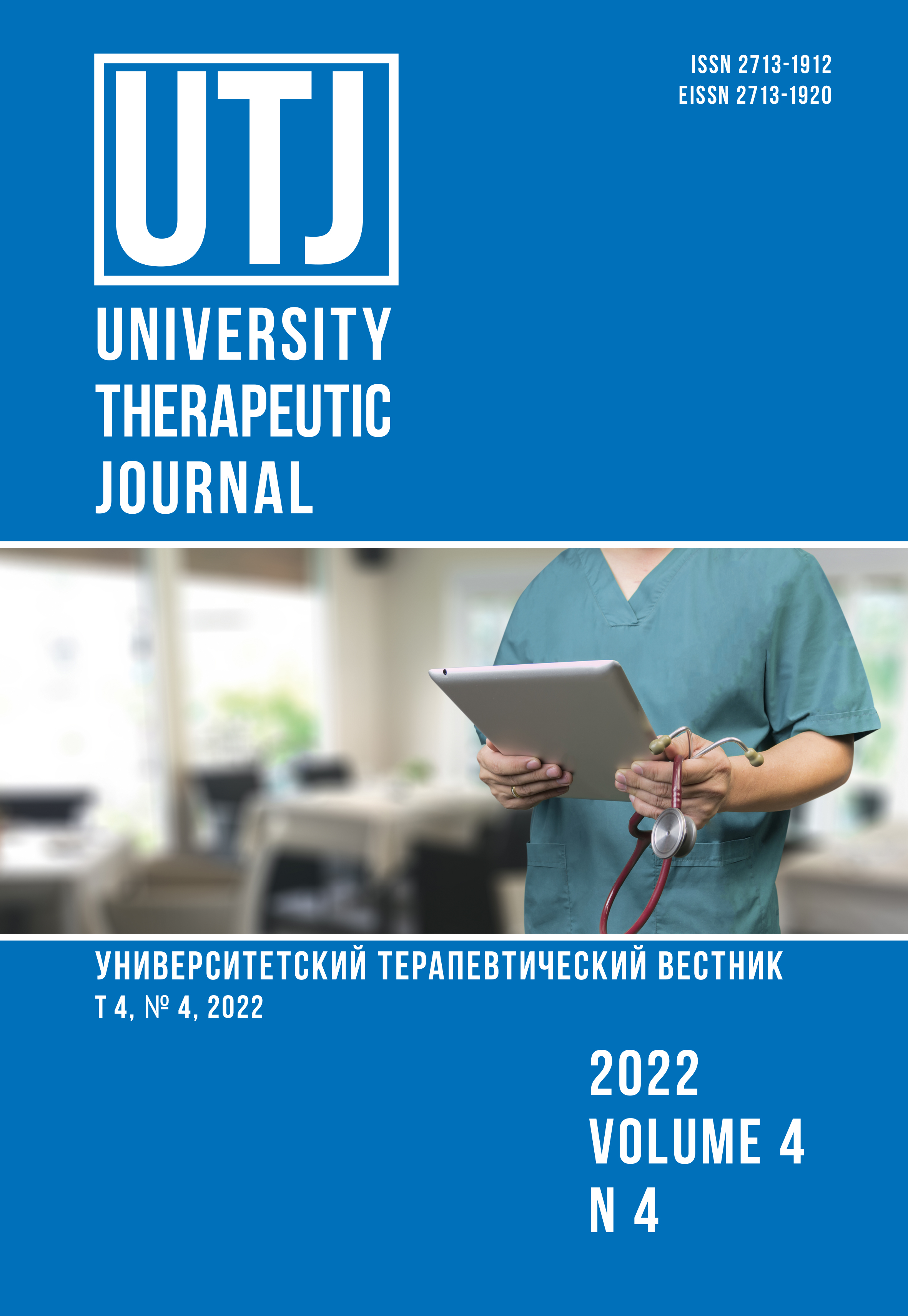THE USE OF IPIDACRINE IN THE TREATMENT OF CONSTIPATION IN OBESE AND DIABETIC PATIENTS
Abstract
The aim: to evaluate the effectiveness of ipidacrine (ipigrix) in the treatment of constipation in patients with obesity and type 2 diabetes mellitus. Materials and methods: 41 patients with abdominal obesity, type 2 diabetes mellitus, who were diagnosed with constipation syndrome (frequency of bowel movements 3 times a week or less, 1-2 type of stool on the Bristol scale) were monitored. According to the treatment received, the patients were divided into two groups: patients of the study group (21 people) received combined therapy of constipation using macrogol and ipidacrine (macrogol 4000 at a dosage of 1 packet 1 time per day for 14 days, then 1 packet every other day for 14 days, ipidacrine (ipigrix) according to the scheme: 20 mg 3 times a day for 4 days, from 5 days - every other day for 10 days, then 40 mg 2 times a week for 2 weeks), in the comparison group (20 people), patients received macrogol as monotherapy. Before the start of therapy and after the end of treatment, patients underwent a complex examination: assessment of gastroenterological complaints, stool frequency (number of bowel movements per week), type of stool according to the Bristol scale (type 1-7), time of defecation during the day to identify possible disorders of circadian rhythms, assessment of gastroenterological complaints according to the GSRS questionnaire, assessment of quality of life according to the SF-36 questionnaire, evaluation of side effects. Statistical data processing was performed using Statistica 10 and SAS JMP 11 programs. Results: in the study group, the relief of gastroenterological complaints and the improvement of stool was significantly better than in the comparison group: after treatment, the frequency of bowel movements increased by 2.6 and 1.6 times, the type of stool improved by 2.4 and 1.7 times, the frequency of morning stools increased by 1.7 and 1.4 times, a decrease in constipation according to the GSRS questionnaire in 3.4 and 2.2 times, respectively (p < 0.05). There were no clinically significant side effects and allergic reactions during treatment. Conclusion: Ipidacrine (ipigrix) can be recommended for course use in the treatment of constipation syndrome in patients with obesity and type 2 diabetes mellitus both for the treatment of diabetic polyneuropathy and for the normalization of stool, which not only improves the patient’s well - being, but also contributes to the prevention of colorectal cancer.


